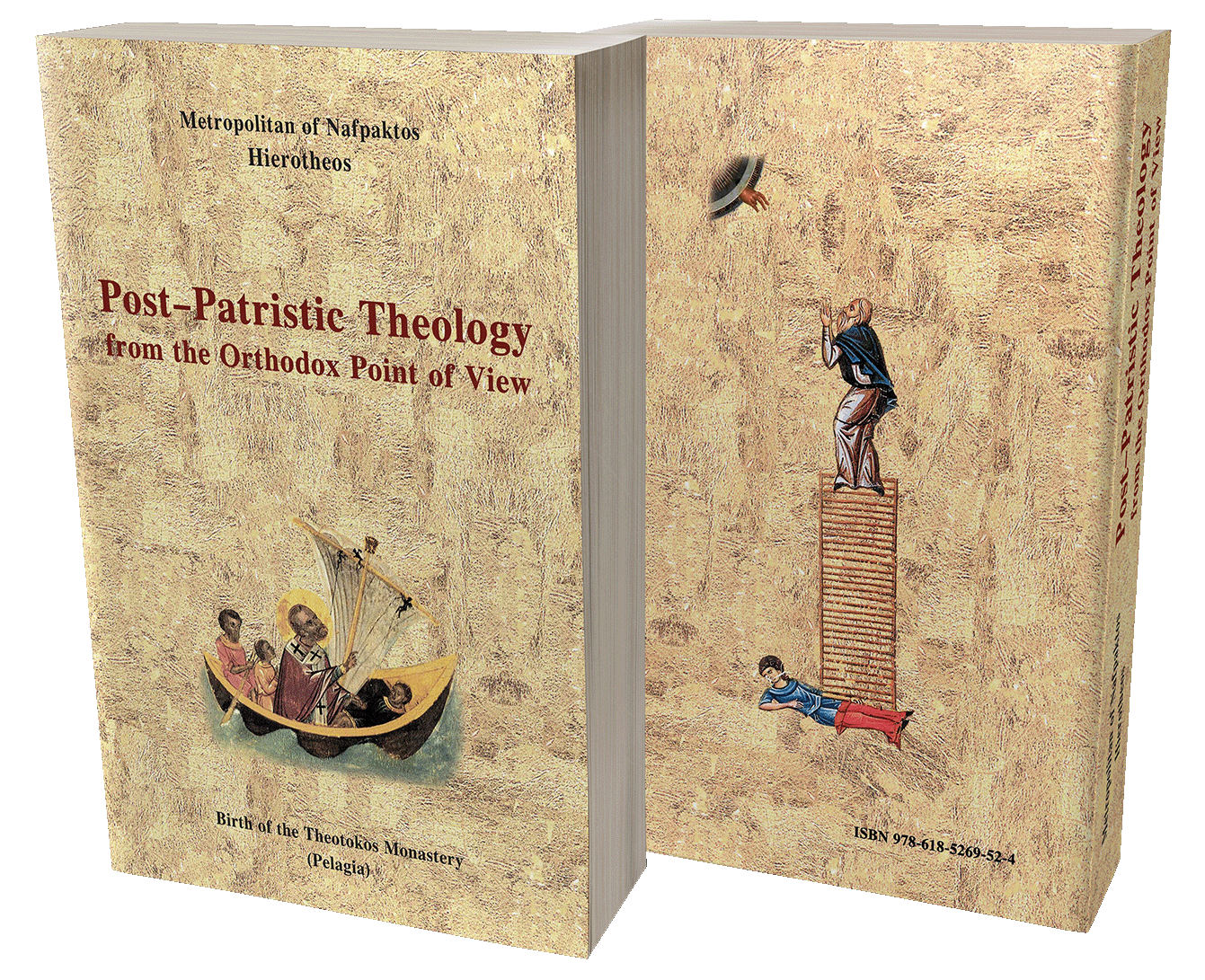
Introduction
Preface to the English Edition
1. Post-Patristic Theology from an Ecclesiastical Perspective
1. The Theology of Aleksei Khomiakov as the Core of Post-Patristic Theology
2. Basic Points of Post-Patristic Theology
3. Applications of Post-Patristic Theology in Modern Theological Thought
4. A Typical Example
5. The Ecclesiastical Tradition
a) The Unity of Prophets, Apostles and Fathers
b) Ineffable Words and Created Words and Concepts
c) The Riches of Worship and Liturgy
d) The Case of Elder Sophrony
6. Final Words
2. An Incipient Heresy in the Orthodox Church
1. The Alleged Two Types of Ecclesiology in Orthodox Theology
2. Brief Refutation
3. More Detailed Analyses
a) The Preconditions for Theologising in an Orthodox Way
b) The Experience of the Glory of God and Putting it into Words
c) The Neptic Tradition and Holy Scripture
d) The Neptic-Hesychastic Tradition and the Holy Fathers
e) The Neptic-Hesychastic Tradition and the Ecumenical Councils
f) The Tradition of the Philokalia
g) Neptic Theology, the Sacraments and the Worship of the Church
h) Fr John Romanides’ Interpretation
4. Conclusion
3. The ‘Language’ of God and Human Language: Ineffable Words and Created Words and Concepts
1. Experience of Ineffable Words
2. The ‘Voice’ of God and Human Languages
a) The Views of Eunomius
b) Essence and Energies, Things and Names
c) God is not a “Schoolmaster”
d) Languages are Constructed by Human Beings
e) There are no Sacred Languages
f) God’s Communication with Human Beings
3. Conveying Ineffable Words with Created Words and Concepts
4. The Experience of Revelation and Theological Terms
5. Conclusion
4. Physics, Metaphysics and Orthodox Theology
1. Physics and Metaphysics
a) Terminology in Brief
b) The Relationship between Physics and Metaphysics
2. Western Theology and Opposition to Metaphysics
a) Scholastic Theology: Worldview
b) Demolition of this Worldview by the Enlightenment Philosophers
3. The Essence of Orthodox Theology
4. Theologians and Scientists in Relation to God and the World
5. Conclusion
5. Dialectical and Demonstrative Syllogisms concerning Divine and Human Things
1. Twofold Truth, Knowledge and Methodology
2. Syllogisms and Dialectic
a) Types of Syllogisms
b) Definition and Content of Dialectic
c) Dialectic and Scholasticism
3. The Teaching of St Gregory Palamas about Dialectical and Demonstrative Syllogisms
a) Knowledge of God
b) Dialectic from the Orthodox Point of View
c) Dialectical and Demonstrative Syllogisms about God
d) The Difference between Dialectical and Demonstrative Syllogisms
e) Scholastic and Orthodox Theology
4. Philosophy, Science and Theology
5. Conclusion
6. Objections to the ‘Ontology of the Person’: Chronicle of a Research Project
1. The ‘Objection’ of Christos Yannaras
2. Chronicle of a Research Project on the Subject of the Person
3. My Books and Writings about the Person
a) Person and Freedom
b) The Person in the Orthodox Tradition
c) ‘Teaching about the Person, according to St Gregory Palamas’
d) ‘The Person as Truth in the Teaching of Elder Sophrony’
e) ‘Personalism and Person’
f) ‘Persons, Essence and Energy’
g) ‘The Creation of Man’
4. Two Recent Articles about the Person
a) Persons and ‘Communion of Persons’
i. The Theology of the Person
ii. The ‘Communion of Persons’
b) Voluntaristic Personalism
i. The Two Wills in Christ
ii. The Will according to St Maximus the Confessor
iii. Natural and Deliberative Will
iv. The ‘Freedom of the Volition and Will of the Person’ according to Philosophy and Patristic Theology
1) Will and Volition in Western Theology and Philosophy
2) The Will in Orthodox Theology
3) The Teaching of St Maximus the Confessor on Freedom, Will and Free Choice
4) Consequences of Personalism in Ecclesiastical Life
5. General Conclusions about the Person
7. St Gregory Palamas as an Exponent of the Life of the Holy Mountain
1. A Monk of the Holy Mountain at Heart before Becoming a Monk
2. The Foundations of Life on the Holy Mountain
3. Sacraments and Hesychasm
4. Dogma as the Fruit of Praxis and Theoria
5. Exercising the Pastoral Ministry
Conclusion
8. Panagiotis Christou as a Professor and Leading Patrologist
1. Professor and Teacher
2. Leading Patrologist
9. Creation and Re-creation of Human Beings, according to the Philokalia of the Holy Neptic Fathers
1. The Importance of the Philokalia
2. The Introduction by St Nicodemus of the Holy Mountain
a) The Purpose for which Man was Created
b) The Fall of Man
c) The Incarnation of Christ
d) Quenching the Spirit of God
e) The Holy Fathers on Spiritual Vigilance and Prayer
f) Patristic Heritage
g) The Scarcity of Books about the Life of Spiritual Vigilance
h) “Those Being Saved”
i) The Importance of the Anthology of the Philokalia
j) Answer to Objections
k) Exhortation to the Spiritual Banquet
3. Conclusion
10. The Uncreated Divine Liturgy in the Uncreated Temple
1. The Book of the Revelation of St John the Evangelist
2. The Uncreated Divine Liturgy
a) The Preconditions for the Divine Liturgy
b) The Vision of the Uncreated Divine Liturgy
3. The Uncreated Temple
a) The Temple is Opened
b) The New Heaven and New Earth
4. The Reflection of Heavenly Life in the Divine Liturgy of the Church
5. Conclusion

